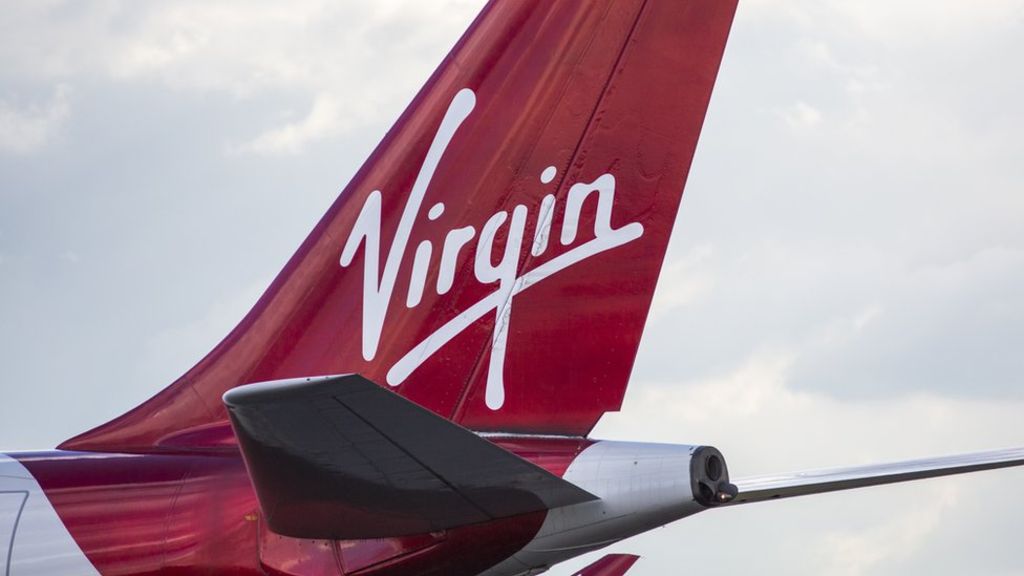Business
Virgin Atlantic May Fold Without State Help-Branson

British tycoon, Richard Branson, has warned that his part-owned airline Virgin Atlantic will collapse unless it receives financial aid from the United Kingdom government to weather the coronavirus crisis.
“We will do everything we can to keep the airline going but we will need government support to achieve that in the face of the severe uncertainty surrounding travel today and not knowing how long the planes will be grounded for,” Branson said in a letter to employees seen by media.
Airlines around the world are on the financial ropes as government lockdown orders and border closures have forced them to ground most of their planes.
“This would be in the form of a commercial loan — it wouldn’t be free money and the airline would pay it back,” he added after the billionaire faced criticism following the airline demanding that staff take unpaid leave during the COVID-19 outbreak.
“The reality of this unprecedented crisis is that many airlines around the world need government support and many have already received it,” Branson added.
“Without it there won’t be any competition left and hundreds of thousands more jobs will be lost, along with critical connectivity and huge economic value,” the letter went on.
Virgin is reportedly seeking £500 million ($612 million, 564 million euros) in state help.
British no-frills, airline EasyJet, recently secured a £600-million loan from the British government, which is dealing with airlines on a case-by-case basis rather than heeding to Virgin’s demand for a multi-billion-pound state-funded pot for the entire UK airline sector.
In his letter to staff, Branson referred to “lots of comments” about his wealth and a duty to prop up Virgin Atlantic and offer financial help to staff from his own pocket.
But he insisted that figures being published regarding his net worth were based on the value of Virgin businesses before the coronavirus pandemic, rather than “cash in a bank account ready to withdraw”.
He added: “Today, the cash we have in the Virgin Group and my personal wealth is being invested across many companies around the world to protect as many jobs as possible, with a big part of that going to Virgin Atlantic.”
Transport
Nigeria Rates 7th For Visa Application To France —–Schengen Visa

Transport
West Zone Aviation: Adibade Olaleye Sets For NANTA President

Business
Sugar Tax ‘ll Threaten Manufacturing Sector, Says CPPE

In a statement, the Chief Executive Officer, CPPE, Muda Yusuf, said while public health concerns such as diabetes and cardiovascular diseases deserve attention, imposing an additional sugar-specific tax was economically risky and poorly suited to Nigeria’s current realities of high inflation, weak consumer purchasing power and rising production costs.
According to him, manufacturers in the non-alcoholic beverage segment are already facing heavy fiscal and cost pressures.
“The proposition of a sugar-specific tax is misplaced, economically risky, and weakly supported by empirical evidence, especially when viewed against Nigeria’s prevailing structural and macroeconomic realities.
The CPPE boss noted that retail prices of many non-alcoholic beverages have risen by about 50 per cent over the past two years, even without the introduction of new taxes, further squeezing consumers.
Yusuf further expressed reservation on the effectiveness of sugar taxes in addressing the root causes of non-communicable diseases in Nigeria.
-

 Niger Delta3 days ago
Niger Delta3 days agoPDP Declares Edo Airline’s Plan As Misplaced Priority
-

 Sports4 days ago
Sports4 days agoSimba open Nwabali talks
-

 Nation4 days ago
Nation4 days agoHoS Hails Fubara Over Provision of Accommodation for Permanent Secretaries
-
Niger Delta4 days ago
Stakeholders Task INC Aspirants On Dev … As ELECO Promises Transparent, Credible Polls
-
Niger Delta3 days ago
Students Protest Non-indigene Appointment As Rector in C’River
-
Rivers4 days ago
Fubara Restates Continued Support For NYSC In Rivers
-

 Oil & Energy4 days ago
Oil & Energy4 days agoNUPRC Unveils Three-pillar Transformative Vision, Pledges Efficiency, Partnership
-

 News4 days ago
News4 days agoDiocese of Kalabari Set To Commence Kalabari University

